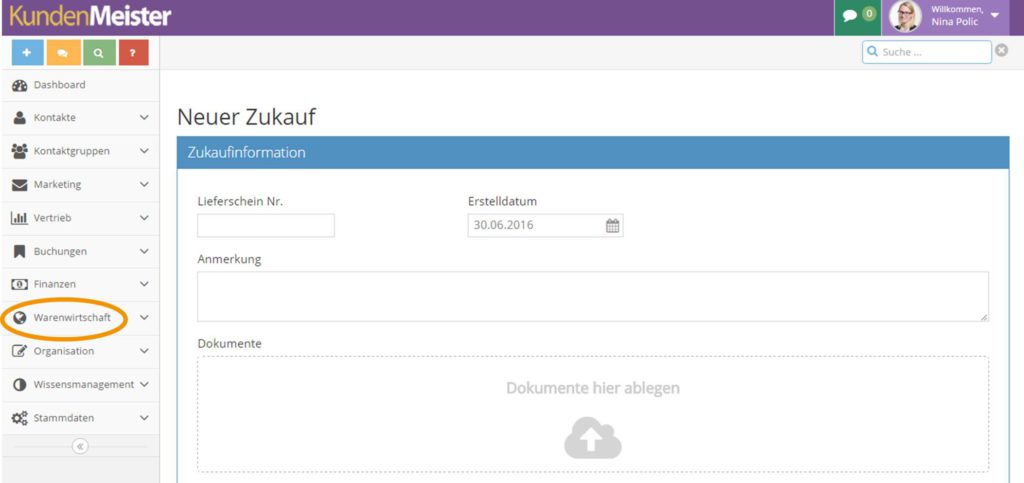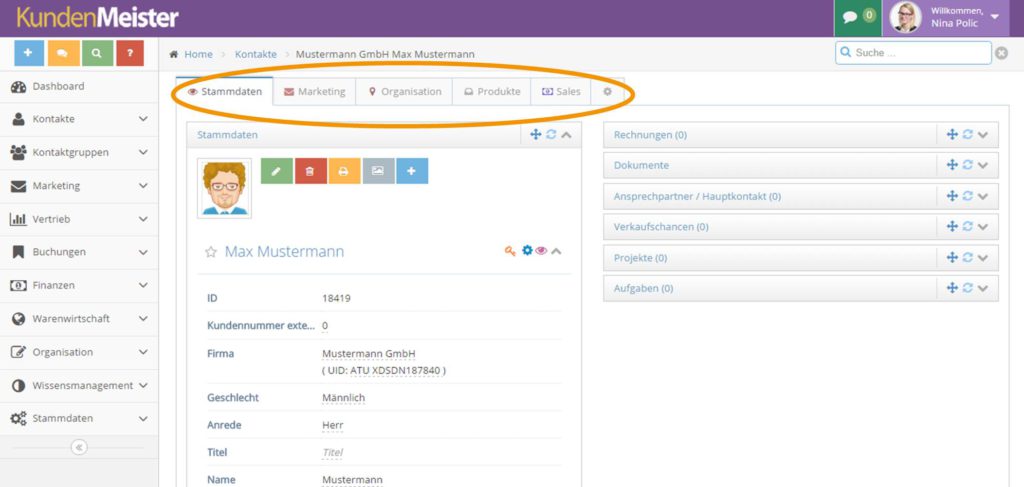As customer needs, user behavior and technologies are changing faster than ever these days, CRM solutions are also subject to constant change. They must adapt to new trends in the best possible way and provide the functionalities demanded by users in order to remain convincing on the market.
As a CRM provider, we are constantly working on our 1Tool software so that our customers can optimally manage their day-to-day business and, above all, meet today’s requirements.
We have done some research for you and summarized the 7 most important CRM trends in 2016:
1) Social CRM
Social networks such as Facebook, Twitter & Co. are becoming increasingly important for both consumers and companies. It is therefore no wonder that the integration of social media is also very much in vogue in the field of CRM systems. Customer information published on social channels is used by modern CRM solutions for more efficient and individual customer communication. CRM software is also increasingly focusing on monitoring and evaluating the opinions and discussions shared by the target group on social media. This will enable companies to adapt their products and services to customer needs even faster and better in the future.
2) CRM as an all-round talent
Another CRM trend can be seen in the buzzword: all-in-one. Individual solutions are becoming less and less important; instead, users want to manage their entire work processes in one software. Numerous CRM solutions, including 1Tool, therefore rely on the combination of different systems and integrate functions from ERP, accounting or applicant systems into the CRM software.
The term “Internet of Things” can also be mentioned in this context. Never before have so many people been connected to so many different devices as today. And CRM solutions are also taking advantage of this. They connect to the devices and combine the digitally collected data in one system. This opens up completely new opportunities for companies to address customers personally.

3) Mobile CRM
The optimal display of websites on cell phones and other mobile devices is nothing new. However, this trend will be further expanded in 2016 and CRM systems are also increasingly focusing on mobile use. This means that CRM solutions can be used on the move and enable a much more flexible way of working. The keyword here is: Real-time data, i.e. data that is synchronized in the software in real time. This means that all employees are always kept up to date and can add new information directly after customer appointments at the touch of a button.
However, mobile CRM is not only reflected in the optimal mobile adaptation of the systems, but also in the provision of dedicated CRM apps to make the software even easier to use.
4) Vertical CRM for industry-specific solutions
Whether it’s the pharmaceutical, financing or real estate industry – each sector has its own special characteristics and, above all, challenges. And to ensure that these can be handled in the best possible way, the trend in 2016 is towards vertical CRM. In contrast to conventional CRM solutions, vertical systems offer functions and features individually tailored to the respective industry. This not only makes work much more efficient, but vertical CRM also supports the increased development of industry-specific expertise within the company.
5) Cloud-based CRM
According to Microsoft, around 50% of all CRM solutions will be cloud-based in 2016. And this figure is set to rise to 62% by 2018. This puts an end to complicated software installations and maintenance work by in-house IT professionals. Cloud-based CRM solutions can be used very easily via a browser and can therefore be used anywhere and at any time. All that is required is Internet access. In addition to ease of use, cloud systems also offer greater security and are a more cost-effective option, even for small and medium-sized enterprises.
6) Collaborative CRM
Another trend in 2016 is called collaborative CRM. The most important components: more transparent work processes and more effective communication. Cross-departmental CRM solutions should ensure improved collaboration both within the company and with external partners. The boundaries between departments such as marketing, sales and project management are becoming blurred, enabling holistic and harmonious processing of the respective customer.

7) User-friendly CRM
The last trend is also referred to as “Easy CRM”. In 2016, every effort is being made to make CRM solutions as user-friendly as possible. Usability is usually the decisive main criterion for the purchase of CRM software. The system should usually be easy to implement and integrate into the company without a great deal of training. Many CRM solutions, such as 1Tool, therefore stand out with their clear user interface, which can be operated intuitively.
Are you interested in a modern CRM solution? Then get to know our 1Tool software and let our experts advise you personally!
